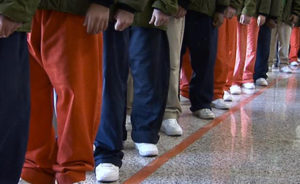Legislative Update 11-10-23
Legislature adjourns for the year
As predicted, the Michigan legislature has completed its work for 2023 and is expected to adjourn sine die next week Tuesday. This early adjournment for the year is in part due to the need to have certain previously passed pieces of legislation enacted early, the most pressing of which is the movement of the presidential primary election date. Public Act 2 of 2023 by Sen. Moss (D-Oakland) changes the election date to the fourth week of February. The bill was approved earlier this year but was not granted immediate effect. If a bill does not receive immediate effect, it is not implemented until 90 days after adjournment. Traditionally, the legislative term ends mid-December.
Moving the presidential primary date was a priority for Governor Whitmer and makes Michigan the fifth state in the nation to hold the election. The Legislature had several late nights over the past few weeks to tie up loose ends before heading back to their districts for the year.
Solar siting reform legislation will soon be signed into law

House Bill 5120 by Rep. Aiyash (D-Wayne) passed the Senate on Wednesday along party lines and received a concurrence vote in the House later that day. The bill will take effect 1 year after the governor signs it. The following provisions are included in the final version:
- The bill applies to all solar facilities greater than 50 megawatts, and wind facilities greater than 100 megawatts.
- If a local unit wants the responsibility of approving or denying applications, it must adopt a “compatible renewable energy ordinance” (CREO). Locals will have 1 year from effective date to create and adopt a CREO. A CREO cannot be any more restrictive than what is prescribed in the bill.
- If a local unit does adopt a CREO, a developer must apply to them first and the local unit has 120 days to approve or deny the application. The deadline can be extended up to an additional 120 days if the local unit and applicant agree.
- If the local fails to act in 120 days or if the application is denied but meets the requirements of the bill, the Public Service Commission (PSC) then reviews the application.
- If the PSC approves an application, the local CREO can be voided if the PSC feels the local’s initial denial was unreasonable.
- If the PSC approves the application, the applicant will give the local unit $75,000 to be used as an intervention fund.
- The applicant will give the local $2,000 per megawatt for public safety or infrastructure improvements, but the applicant must agree to the terms of use.
MAC’s Madeline Fata testified in opposition to the bill on Tuesday in the Senate Energy Committee. Some of Fata’s concerns were resolved in the latest draft but the substance of the bill remained largely unchanged between chambers. While the latest version may appear to preserve local control to a degree, locals will be limited in what they can and cannot consider when deciding on an application.
The governor is expected to sign the bill in the coming weeks, especially since the clean energy package was also approved this week. Senate Bill 271 by Sen. Geiss (D-Wayne) passed along party lines in both chambers to set a renewable energy standard of 50% by 2030, and 100% clean energy by 2040. The siting reform legislation was introduced to supplement the clean energy package, with the goal of making it easier for solar and wind facilities to be built across the state.
Juvenile justice reform bills headed to governor
A majority of the 20-bill package to make sweeping reforms to the juvenile justice system, and which is backed by MAC, gained approval in the Michigan House and Senate this week. All but one of the bills, House Bill 4630, were passed and sent to the Governor.
House Bills 4624-43 and Senate Bills 418-423, 424, 425, 426, 427, 428-429, 430-431 and 432-437 are a result of the Michigan Task Force on Juvenile Justice Reform’s recommendations provided last July. House Bills 4625, 4626, 4628-4629, 4633, 4636-4637, 4639-4640 and 4643, alongside Senate Bills 418, 421, 425, 426, 428, 429, 431, 432, 435 and 436 are headed to the Governor’s desk.
The Task Force on Juvenile Justice Reform was established in 2021 and tasked with assessing Michigan’s juvenile justice data and identifying ways to improve the system. Two county commissioners served on the Task Force, each nominated by MAC. Alisha Bell of Wayne represented a county commissioner from a county with a population over 100,000, and Marlene Webster of Shiawassee represented a county commissioner from a county under 100,000 in population. Rep. Sarah Lightner, R-Jackson and a former county commissioner, also served on the panel.
The task force discovered several challenges to strengthening public safety and improving outcomes for youth. This led to the set of 32 recommendations provided to the Legislature last year. The recommendations would improve community safety, reduce disparities and improve youth outcomes.
SB 418, by Sen. Sylvia Santana (D-Wayne), enhances the County Child Care Fund (CCF) by establishing a minimum framework of juvenile justice best practices statewide, including the use of risk screening and assessment tools. The best practices will be supported by an increase in the reimbursement rate for community-based services from 50 percent to 75 percent, including 17-year-olds. These changes are essential to ensuring counties have the resources to implement and utilize these approaches. The reimbursement rate for residential services will be 50 percent, including the 17-year-old population.
SBs 419–423 and HBs 4625-29 require the consistent use of validated screening and assessment tools to enable more objective decision-making and allow agencies to better match youth to appropriate supervision and services, reducing their likelihood to recidivate. The bills also expand the Diversion Act so that all offenses, with an exception for youth committing a specified juvenile violation, are eligible for pre-court diversion, based on the use of a risk-screening tool and other factors, and limit the time that a youth can be placed on pre-court diversion, unless the court determines that a longer period is needed. While diversion eligibility would be expanded, judicial discretion remains.
SB 424 and HB 4630, by Sen. Sue Shink (D-Washtenaw) and Rep. Sarah Lightner (R-Jackson), respectively, would expand the Michigan Indigent Defense Commission to include development, oversight, and compliance with youth defense standards in local county defense systems. MAC has worked to ensure there would be no increase in the local share for MIDC services, that 40 percent of the total grant amount would be received upfront and that partially indigent reimbursements will remain. House Bill 4630 never received a vote in the Senate. It remains to be seen if the legislature will revisit this bill in 2024.
If enacted, this legislation would take effect Oct. 1, 2024.
MAC supports this package.
For more information on this issue, contact Samantha Gibson at gibson@micounties.org.
State House split evenly between Democrats and Republicans
Two Representatives exited the Michigan House this week, leaving a 54-54 split between Democrats and Republicans. On Tuesday, Reps. Coleman (D-Oakland) and Stone (D-Oakland) won mayoral races in their respective hometowns of Westland and Warren. Both will be seated next week, and the House will have a split majority for the first time in nearly 30 years.
While Rep. Tate (D-Wayne) remains speaker of the House and Democrats will retain control over the chamber, the House will struggle to pass partisan policies until those seats are filled via special election. It is expected that a special election will be held in mid-May. Both parties will need to work together and heavily negotiate to move any legislation in the spring.
Counties can create Opioid Fatality Review Teams under House-approved legislation
This week, the House approved Senate Bill 133, by Sen. McCann (D-Kalamazoo). SB 133 would allow a county or group of counties to establish an Opioid Fatality Review Team, by creating the Overdose Fatality Review Act.
If a county chooses, an opioid fatality review team would consist of county officials, individuals from law enforcement, and those from public health agencies. The main goal of a team would be to identify potential causes of drug overdose in their community and recommend law or policy changes for the prevention of those causes and overdoses.
Senate Bill 133 now heads to the governor.
MAC supports this legislation. For more information on this issue, please contact Samantha Gibson at gibson@micounties.org.
Medication aide legislation passed by Senate
A package to create medication aide registration and permits, supported by the Michigan County Medical Care Facilities Council (MCMCFC), was approved by the Senate this week.
House Bills 4885 and 4923, by Reps. McKinney (D-Wayne) and Aragona (R-Macomb), respectively, would allow for the training and registration of medication aides, similar to conditions for registration and training for nurse aides, commonly referred to as certified nurse aides, or CNAs.
These bills will address staffing shortages within county medical care facilities, likely increase retention and recruitment for nurses, nurse aides, and medication aides, as well as reduce overall errors by freeing up nurses within facilities. HBs 4885 and 4923 now wait for the governor’s signature.
For more information on this issue, contact Samantha Gibson at gibson@micounties.org.
Senate approves additional judgeships in Kent and Macomb counties
New judgeships will soon exist in Kent and Macomb counties after the Senate passed House Bills 4823 and 4920, by Rep. Wozniak (R-Macomb) and Rep. Fitzgerald (D-Kent), respectively. HB 4823 would add a probate court judge in Macomb County, while HB 4920 would add a district judge in Kent County.
The Macomb Probate Court now has two probate judges, so HB 4823 would add a third slot. HB 4920 would add a judge to the 63rd District Court in Kent County. However, the Kent seat would still need approval from the Kent County Board of Commissioners, even after any legislation is signed into state law. After approval from the Board of Commissioners, an election would have to be held in 2024 to elect a new judge.
The bills now head to the governor’s desk and await her signature.
MAC supports this legislation.
For more information on this issue, contact Samantha Gibson at gibson@micounties.org.
Opioid Advisory Commission announces survey and listening sessions
The Opioid Advisory Commission (OAC) is excited to announce the release of the Michigan Opioid Settlement Funds: Community Impact Survey and Community Voices Listening Sessions.
The survey takes roughly ten (10) minutes to complete and covers questions related to lived experience, access to care, and recommendations for the use of state opioid settlement funds. It is entirely voluntary, anonymous, and open to all members of the public. If you’re interested in viewing the survey before taking it, please click here—a public copy of the survey can be found under “What to Expect: View the Survey” on the OAC’s website. Information from the survey may be discussed in public meetings, referenced in reports written by the OAC, and used to help the OAC develop recommendations to the state legislature for funding and policy.
Listen sessions will take place weekly and new monthly flyers will be posted on the Opioid Advisory Commission’s website.
Please contact oac@legislature.mi.gov for more information.
Operation Green Light will honor nation’s veterans
America’s counties have a long and proud history of serving our nation’s veterans, a legacy that continues to this day as we work with our federal, state and local partners to ensure that the former service members have access to the resources they need to thrive.
Once again this Veterans Day (Saturday, Nov. 11, 2023), the National Association of Counties (NACo) and the National Association of County Veterans Service Officers (NACVSO) invite the nation’s 3,069 counties, parishes, and boroughs to join Operation Green Light and show support for veterans by lighting our buildings green from Nov. 6-12. By shining a green light, county governments and our residents will let veterans know that they are seen, appreciated and supported. The picture is of Wexford County Courthouse lit up for operation Green Light.
To show support, counties are encouraged to use this template to pass a resolution declaring your county’s participation in Operation Green Light. If you pass a resolution or light your building green, please send a copy of the resolution and any pictures to despins@micounties.org
For a variety of materials to publicize and support your Green Light efforts, visit NACo’s resource hub.
 Staff picks
Staff picks
- Using opioid settlement cash for police gear like squad cars and scanners sparks debate (Kaiser Health News)
- How to recognize, avoid and protect your county against phishing attacks (NACo County News)
- The weaponizing of environmental law (Governing)
- The world’s most beautiful bird lives in Yellowstone National Park (Literary Hub)







